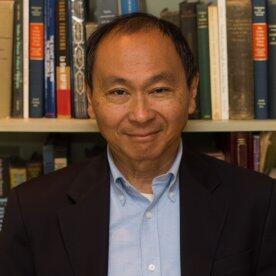Identity and Identity Politics
Thursday, October 5, 201712:00 PM - 1:30 PM (Pacific)
Encina Hall, Second Floor, Central, C231
616 Jane Stanford Way, Stanford, CA 94305
Abstract:
The concept of identity is a modern one in which individuals and groups seek recognition of the dignity of a hidden inner self. The concept can be traced back to Luther, but takes its characteristically modern form in the thought of Kant and Rousseau. In the 19th century identity manifests itself as nationalism and in the 21st as Islamism, both of which are triggered by the modernization of agrarian societies and the identity confusion that process entails. In liberal societies identity takes an individualistic rather than a collective form, though the two forms begin eventually to converge in what we understand as contemporary identity politics. In today’s America, the Left has defined itself in terms of various identity groups, which has triggered a search for identity on the Right in the rise of Donald Trump. The demand for recognition of narrow group rights is dangerous for liberal societies, and needs to be replaced by more integrative forms of national identity.
Speaker Bio:

